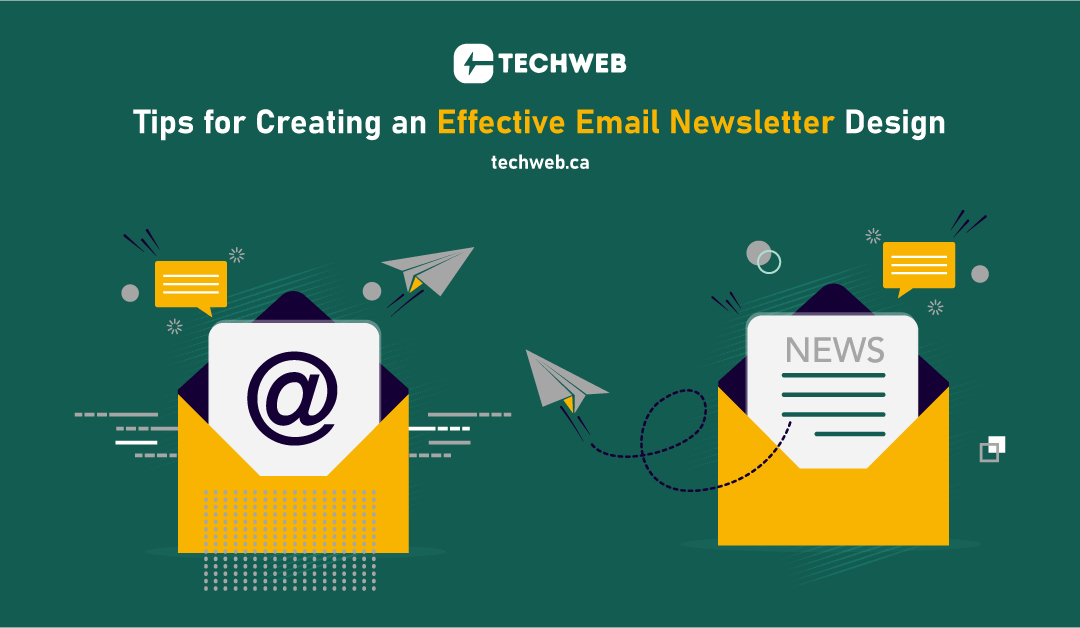In this blog, we’ll explore key tips for creating an effective email newsletter design that not only stands out in crowded inboxes but also drives meaningful connections with your subscribers.
1. Prioritize Mobile Responsiveness
With a significant portion of users accessing emails on mobile devices, ensuring mobile responsiveness is paramount. Design your email newsletter with a responsive layout that adapts seamlessly to various screen sizes. Test the design on different devices to guarantee a consistent and user-friendly experience.
2. Clear and Compelling Subject Lines
The journey of engagement begins with the subject line. Craft clear and compelling subject lines that pique curiosity without being misleading. The subject line sets the tone for the content within and influences whether the email is opened or ignored.
3. Consistent Branding Elements
Maintain consistent branding elements across your email newsletters. Use your brand colors, logo, and fonts to create a visual connection with your overall brand identity. Consistency fosters brand recognition and reinforces trust with your audience.
4. Eye-Catching Header Design
Capture attention from the outset with an eye-catching header design. This could include a visually appealing banner, a striking headline, or a combination of both. The header sets the visual tone for the newsletter and entices readers to explore further.
5. Balanced and Readable Layout
Create a balanced and readable layout that guides the reader through the content. Utilize a clean hierarchy with clear headings, subheadings, and well-spaced text. Break up content into digestible sections, making it easy for readers to navigate and find relevant information.
6. Engaging Visuals and Imagery
Incorporate engaging visuals and imagery to complement your content. Use high-quality images, infographics, or illustrations that align with your brand and enhance the overall visual appeal. Visuals are powerful tools for conveying information and evoking emotions.
7. Personalization for Connection
Personalize your email newsletters to foster a sense of connection. Address subscribers by their names and tailor content based on their preferences or previous interactions. Personalization goes beyond just using a name; it’s about delivering content that resonates with each individual.
8. Strategic Call-to-Action (CTA)
Place strategic calls-to-action (CTAs) throughout your newsletter to guide readers towards desired actions. Whether it’s encouraging them to explore a new product, read an article, or participate in a promotion, the CTA should be clear, compelling, and strategically positioned.
9. Readable Font Choices
Choose readable fonts for your email newsletter to enhance legibility. Stick to web-safe fonts that render consistently across various email clients. Ensure that the font size is appropriate, and use bold or italic styles sparingly for emphasis.
10. Brief and Relevant Content
Keep your content brief, relevant, and focused on providing value to the reader. Avoid overwhelming subscribers with too much information. Instead, highlight key points, share valuable insights, and include links for those who want to explore further.
11. Footer with Contact Information and Unsubscribe Option
Include a footer with essential information such as your contact details and a clear option for subscribers to unsubscribe. This not only complies with email marketing regulations but also reinforces transparency and respect for the subscriber’s choices.
12. A/B Testing for Optimization
Embrace A/B testing to optimize your email newsletter design. Experiment with different elements such as subject lines, visuals, CTAs, and layouts. Analyze performance metrics to understand what resonates best with your audience and refine your approach accordingly.
Conclusion
Designing an effective email newsletter is a delicate balance of art and strategy. By prioritizing mobile responsiveness, maintaining consistent branding, and incorporating engaging visuals, you can create newsletters that not only captivate readers but also drive meaningful engagement. As you refine your approach, stay attuned to subscriber feedback and analytics, allowing you to continuously optimize your email newsletter design for maximum impact and connection with your audience.

